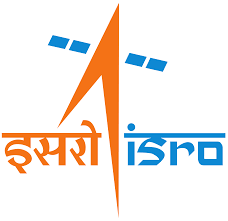-
Realtors
-
- Builders
-
- Property Managers
-
-
Residential Property Management
- Tenant Management
- Rental Assistance
- Property Monitoring
- House Construction
- Interior Design
- Repairs & Fixes & Maintenance
- Residential Apartments
- Residential Land
- Individual House/Villa
- Independent/Builder Floor
- Farm House
- Serviced Apartments
- Studio Apartment
- Property Management Advisory
- Property Bill Payments
-
Commercial Property Management
- Commercial Property Management
- Corporate Property Management
- Industrial Property Management
- Commercial Leasing Management
- Plug & Play office Management
- Retail Showroom/Shop Management
- Commercial Building Management
- Office Complex Management
- Warehouse Management
- Business Center Management
- Commercial Lands and Plots
- Hall And Guest House Management
- Hotel And Restaurant Management
- Resort Management
- Property Management Advisory
- Property Bill Payments
-
-
- Legal & Drafting
-
-
Lease/Rental Agreements
- Apartment Rental Agreement
- House Rental agreement
- Commercial Office Rental Agreement
- Commercial Shop Rental Agreement
- Commercial Lease Agreement
- Residential Lease Agreement
- Room Rental Agreement
- Office Sharing Agreement
- Car Parking Agreement
- Settlement Of Rental Agreement
- Paying Guest Agreement
- Leave And Licence
- NOC From Landlord
- Other Lease/Rental Agreements
-
Procure Revenue Documents
- Encumbrance Certificate
- Khata Extract
- Khata Certificate
- Khata Transfer
- Mother Deed Extract
- Copy of Grant Certificate
- Pahani/RTC
- Mutation
- Electricity Bill Name Transfer
- Duplicate/Certified copy of sale deed
- Certified copy of revenue document
- Certified copy of registered GPA/SPA
- Certified copy of registered documents
- Other Revenue Documents
-
-
- NRI Services
- Corporate Services
- Architects
-
- Surveyers
-
- Engineers
- Valuers
-
- Interiors
-
- Contractors
-
-
Expert/Custom
- Lump Sum or Fixed Price Contract
- Measurement contractors
- Turnkey Contractors
- Design and Build Contractors
- Cost Plus Contractors
- Unit Price Contractors
- Time and Material Contractors
- Item rate contractors
- Percentage rate contractors
- Labour contractors
- Piece-Work agreementors
- Target Contractors
- Time and Material Contractors
- Cost Plus Contracts
-
-
- Loans
-
- Vastu
-

